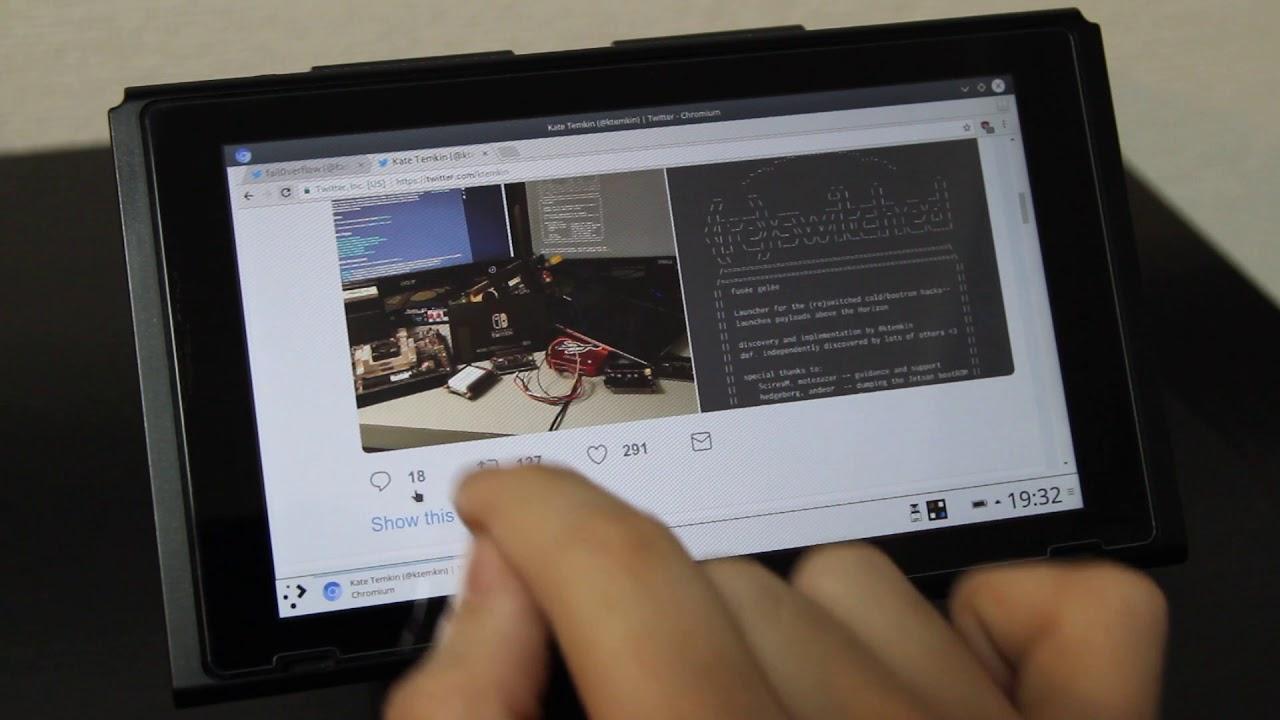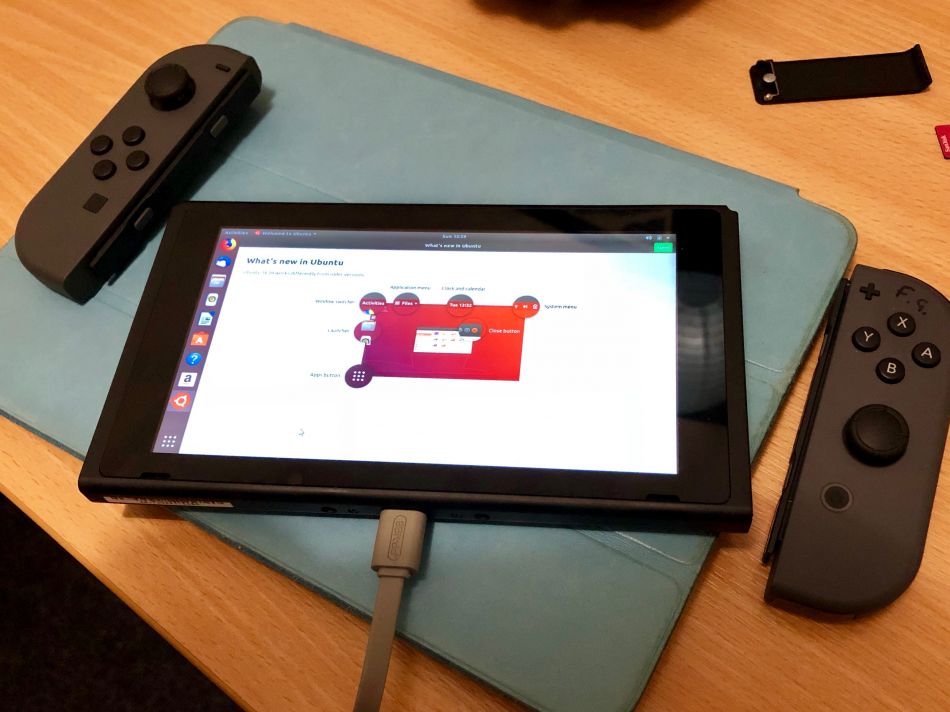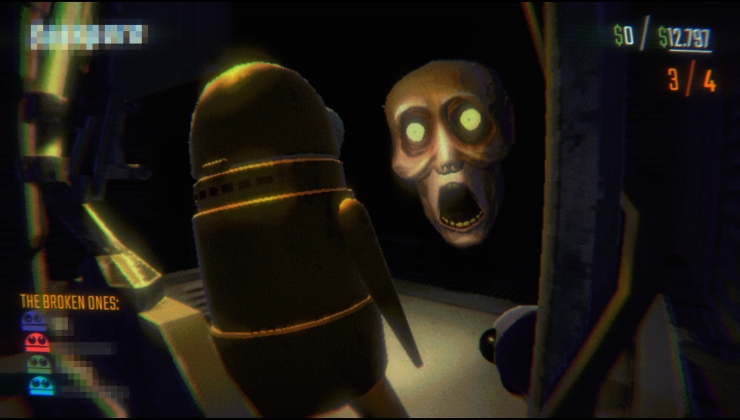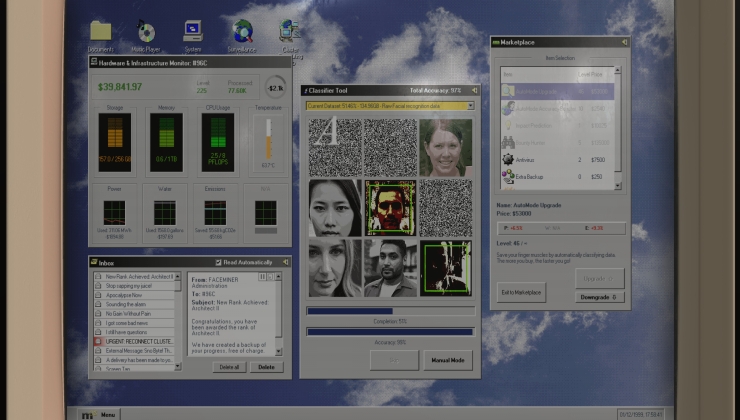You read the headline correctly, Linux can now actually be installed on the Nintendo Switch making it an even more interesting device.
The NVIDIA Tegra SoC used inside the Switch has a rather interesting bug, one that doesn't seem like it can be patched away allowing for any Linux enthusiast to load up Linux directly on their Switch. All current Switch units are vulnerable to the exploit, so Nintendo would need a new version of the Switch to stop this.
See for yourself below:

Direct Link
Interested to learn more about it? There's a post on fail0verflow with more in-depth details. You can also find code and stuff on GitHub.
Fascinating stuff really, as an owner of a Switch it's not exactly something I will be doing (my son would never forgive me), but it's very cool to see nonetheless.
things will never end at this rate, its a "cat-and-mouse game"Welll . . . Wine will never be perfect for current Windows. But over time the proportion of software that was written for Windows-before-the-present gradually increases, and current Windows seems to be getting worse at backwards compatibility, probably deliberately for certain tactical reasons which I think may be mistaken.
https://en.wikipedia.org/wiki/Cat_and_mouse
just like wine will never be perfect for the same reason.
So in theory Wine could become approximately perfect for pre-current Windows, and that becomes a more and more important role.
windows indeed cut the support for old softwares/games (that takes time because microsoft understand that killing the backward compatibility may harm then)
you cant play old dos games on windows anymore, indeed.
except that you can!
dosbox has an version for windows, gog even uses it to sell old games on windows.
so even if windows lose backward compatibility, gamers will be able to play their games anyway, some one will port something like wine to windows, or companies will port their old games and the worse part is, even games distributed with dosbox emulation may not officialy support linux (even if the game is still playable, people considering use it will stay away thinking that the game cant run, or new users will have trouble making it run)
Yeah, Dosbox is great for Dos games. My perfect example of Windows not working with Windows is Interstate '76. It's been a while since I tried it, but even on Windows 7 the colors were all sorts of jacked up, no matter what I did. It works perfectly in Wine though.
IIRC (it has been a while as well), my solution to this kind of problem was to kill explorer before launching the offending program... Something wrong about the color palette. I don't recall if disabling Aero was necessary as well ("net stop themes"), but it might be.
I created a .bat file with "taskkill explorer.exe; my_program; explorer.exe" or so... Still, annoying as hell, and works better under Wine.
I guess they will slowly break Win32 compatibility to push people towards UWP apps. This might have the side effect of pushing them towards Linux/Wine (see, competition is good after all :D ), like it did for Valve (though not exactly trough the same means). Any guesses regarding UWP support in Wine, by the way?
(Sorry, this post was completely off-topic)
I wonder if at some point Wine (or something similar) will be ported to Windows 10. With all the Linux subsystems being released, I kind of half expect them to ditch the NT kernel. Ha! Wouldn't that be the day?
there is demmand for that, just look at gog and how they use dosbox.
I guess they will slowly break Win32 compatibility to push people towards UWP apps. This might have the side effect of pushing them towards Linux/Wine
we cant count on MS shooting then selfs on their foot as our trump card.
sure they will break win32 bits compatibility in order to push UWP, but that will only make their apps run on arm devices as an result.
and someone will port wine to UWP format to keep seling old games.
there is no way arround it, either we make some killer exclusives or the market will not change .
its a shame we dont have any arm games to run on it.
at least not on steam... (and the steam client itself dont work on arm)
Well, technically you could, using LLVM. The only issue is that it likely would not be performant enough to matter.
you need the source code to recompile then to arm
its a shame we dont have any arm games to run on it.
at least not on steam... (and the steam client itself dont work on arm)
Well, technically you could, using LLVM. The only issue is that it likely would not be performant enough to matter.
you need the source code to recompile then to arm
I'm talking about skipping compiling games and applications to ARM and using an in-between program that would run X86 programs through a virtual CPU using LLVM.
Though, as I said, it would not be performant enough to matter, anyway. I was being pedantic.
Last edited by D34VA_ on 5 Jun 2018 at 8:06 pm UTC
its a shame we dont have any arm games to run on it.
at least not on steam... (and the steam client itself dont work on arm)
Well, technically you could, using LLVM. The only issue is that it likely would not be performant enough to matter.
you need the source code to recompile then to arm
I'm talking about skipping compiling games and applications to ARM and using an in-between program that would run X86 programs through a virtual CPU using LLVM.
Though, as I said, it would not be performant enough to matter, anyway. I was being pedantic.
Yeah, pretty sure using qemu-x86 through an ARM would be slow as hell. That's assuming ARM supports any sort of VT-d style function on the Tegra X1
its a shame we dont have any arm games to run on it.
at least not on steam... (and the steam client itself dont work on arm)
Well, technically you could, using LLVM. The only issue is that it likely would not be performant enough to matter.
you need the source code to recompile then to arm
I'm talking about skipping compiling games and applications to ARM and using an in-between program that would run X86 programs through a virtual CPU using LLVM.
Though, as I said, it would not be performant enough to matter, anyway. I was being pedantic.
https://arstechnica.com/gaming/2011/08/accuracy-takes-power-one-mans-3ghz-quest-to-build-a-perfect-snes-emulator/









 How to set, change and reset your SteamOS / Steam Deck desktop sudo password
How to set, change and reset your SteamOS / Steam Deck desktop sudo password How to set up Decky Loader on Steam Deck / SteamOS for easy plugins
How to set up Decky Loader on Steam Deck / SteamOS for easy plugins
See more from me